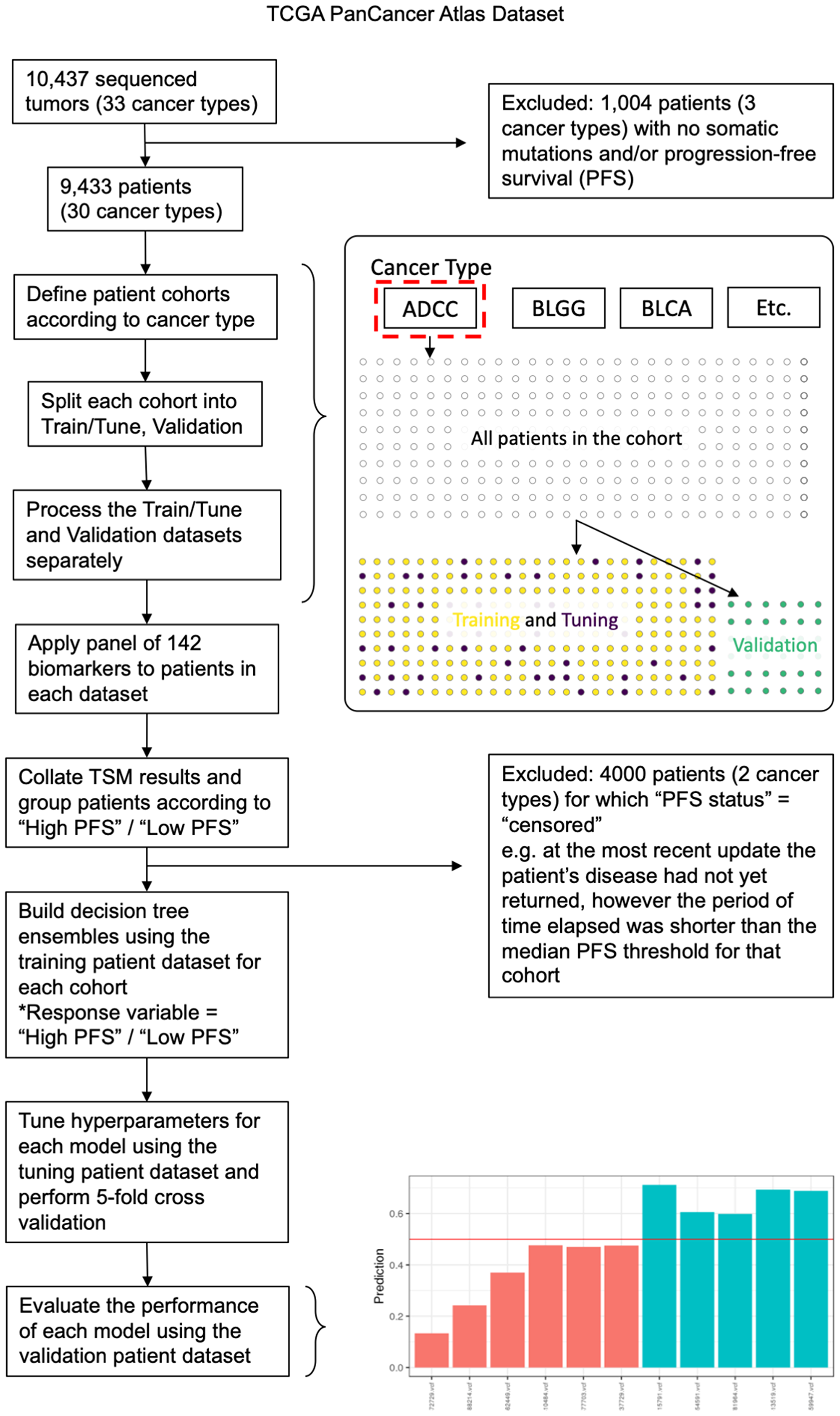Oncotarget published "Predicting clinical outcomes using cancer progression associated signatures" which reported somatic mutation signatures are an informative facet of cancer aetiology, however they are rarely useful for predicting patient outcome.
The aim of this study is to evaluate the utility of a panel of 142 mutation-signature–associated metrics for predicting cancer progression in patients from a ‘TCGA PanCancer Atlas’ cohort.
Cancer specific machine learning models were built using the output from the P142 panel to predict patient Progression Free Survival status as either “High PFS” or “Low PFS”.
Models accurately predicted PFS status for several cancer types, including adrenocortical carcinoma, glioma, mesothelioma, and sarcoma.
In conclusion, the P142 panel of metrics successfully predicted cancer progression status in patients with some, but not all cancer types analyzed.
The P142 panel of metrics successfully predicted cancer progression status in patients with some, but not all cancer types analyzed.
Dr. Mamrot from The GMDx Group Ltd as well as The Monash University said, "Cancer is a leading cause of human mortality worldwide and the incidence of cancer is expected to rise as our average life expectancy increases."
Furthermore, the accumulation of specific deaminase-associated mutations in a patient can provide valuable information on how the cancer has developed, and in specific cases provide information on the rate of progression of the disease and likely response to specific treatments.
Antecedent research has shown that, when combined with the codon-context of the targeted motifs for both cytosine and adenosine deaminases as described by Lindley, deaminase-associated mutation signatures can be used to stratify patients with high-grade serous ovarian cancer into long-term and short-term survivors.
This is the first application of these deaminase-associated metrics for predicting cancer progression and patient outcomes.

Figure 5: Data analysis pipeline outlining key data processing, machine learning analysis, and validation steps used in the study. Exclusion criteria are described further in the Methods. Patients were grouped according to cancer type and were split into training, tuning and validation cohorts using a stratified semi-random approach. The P142 panel was then applied to patients in each cohort separately and the TSM results (the collective output of the panel) were collated. For each cancer type, the XGBoost algorithm was used to train and tune models using the training and tuning cohorts, then the final model was evaluated using the validation cohort. This process was repeated (20 rounds) using a different patient split in each case. The barplot illustrates predictions for validation patients (prediction values between 0 and 1) with patients predicted to be “Low PFS” below the red line and patients predicted as “High PFS” above the red line. Bars are colored according to their actual PFS status: red = “Low PFS” and green = “High PFS”.
The aim of this study is to evaluate the efficacy of a panel of 142 deaminase-associated metrics for predicting the rate of cancer progression in patients selected from The Cancer Genome Atlas PanCancer Atlas cohort.
The P142 metrics evaluated in this study are defined and described in Supplementary Table
1. The authors hypothesize that the P142 markers associated with AID/APOBEC and ADAR deamination and codon reading frame context can be used to predict cancer progression for patients with a range of different cancer types.
The Mamrot Research Team concluded in their Oncotarget Research Output, "we have identified a correlation between cancer patient outcomes and changes in metrics associated with deaminase mutagenesis in some, but not all, cancer types investigated. Potential molecular explanations for this observation are based on our evolving understanding of dysregulated deaminase DNA mutagenesis, disrupted DNA-RNA repair pathways and subsequent aberrant protein production. Further investigation using prospective, purpose-designed studies would likely improve the efficacy of machine learning models and provide a more accurate evaluation of the potential utility of this approach. This study provides a basis for further development of biomarker panels based on metrics associated with deaminase mutagenesis for predicting cancer progression and patient outcome."
DOI - https://doi.org/10.18632/oncotarget.27934
Full text - https://www.oncotarget.com/article/27934/text/
Correspondence to - Jared Mamrot - [email protected]
Keywords - innate immunity, biomarker, mutagenesis, oncogenesis, cancer progression
About Oncotarget
Oncotarget is a bi-weekly, peer-reviewed, open access biomedical journal covering research on all aspects of oncology.
To learn more about Oncotarget, please visit https://www.oncotarget.com or connect with:
SoundCloud - https://soundcloud.com/oncotarget
Facebook - https://www.facebook.com/Oncotarget/
Twitter - https://twitter.com/oncotarget
LinkedIn - https://www.linkedin.com/company/oncotarget
Pinterest - https://www.pinterest.com/oncotarget/
Reddit - https://www.reddit.com/user/Oncotarget/
Oncotarget is published by Impact Journals, LLC please visit https://www.ImpactJournals.com or connect with @ImpactJrnls
Media Contact
[email protected]
18009220957x105



